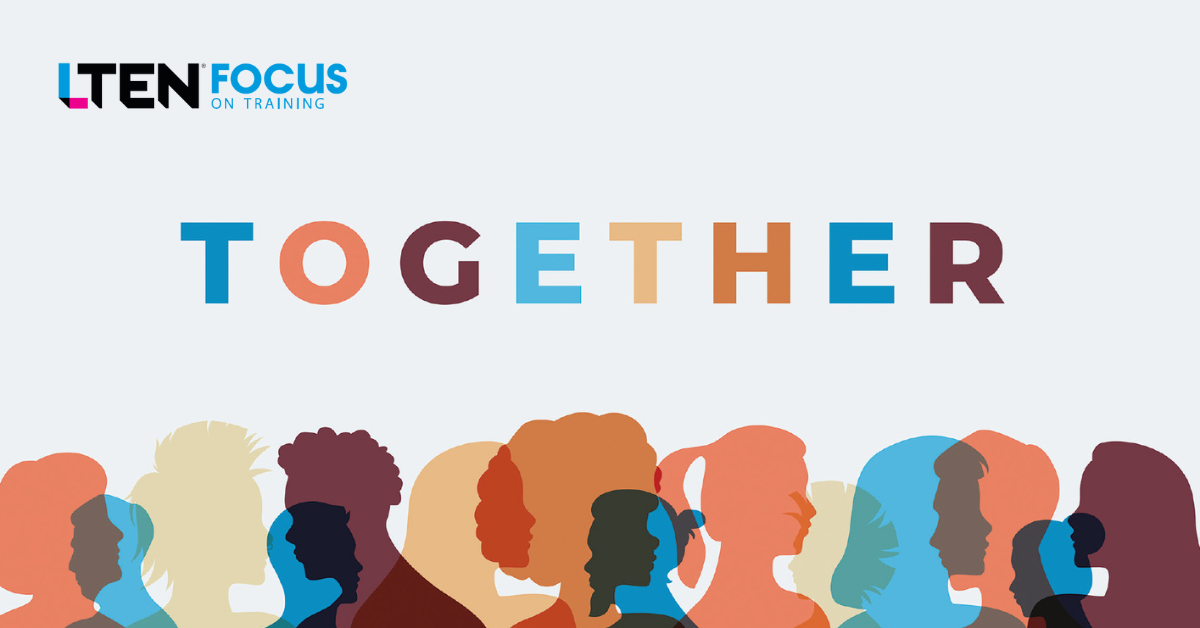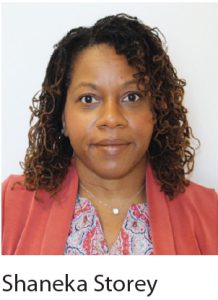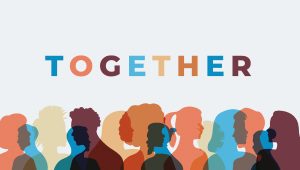
Diversity Equity & Inclusion – By Alexis White
‘We have no hope of solving our problems without harnessing the diversity, the energy and the creativity of all our people.’ – Roger Wilkins
As trainers, educators and industry leaders, we are aware that diversity improves outcomes and drives excellence in the world of life sciences. But if we are honest, shouldering the responsibility of creating and implementing a diverse and equitable training practice is demanding and, at times, intimidating.
However, our mission is jeopardized by failure to confront our shared responsibility to respond to the needs of the global community we aim to serve.
 So where do we begin? We begin by harnessing the experiences and expertise of the members in our LTEN community, we can create the inclusive lens to facilitate the disruption that world-class learning requires. If we can leverage this inclusive lens in our work to increase the effectiveness of training and learning, addressing health disparities and inequities becomes intuitive.
So where do we begin? We begin by harnessing the experiences and expertise of the members in our LTEN community, we can create the inclusive lens to facilitate the disruption that world-class learning requires. If we can leverage this inclusive lens in our work to increase the effectiveness of training and learning, addressing health disparities and inequities becomes intuitive.
For inspiration and energy, we turned to some training experts – and women of color – in a “fireside chat” format. Shaneka Storey is senior training manager for oncology at Gilead, and Andrea Penn is associate director of commercial learning and development at Kite Pharma. This article summarizes their thoughts on some crucial issues facing life sciences training.
 Question: Why is diversity and inclusion important in the life sciences space?
Question: Why is diversity and inclusion important in the life sciences space?
Shaneka Storey: As educators, we hold a unique role in guiding our colleagues toward new perspectives and fostering inclusivity within our society. By providing opportunities for learning about diversity, equity and inclusion (DEI), we not only shape the dynamics within our organizations but also influence broader societal shifts.
The FDA has recently issued guidelines to the life sciences industry, mandating that clinical trials accurately reflect the demographics of the patients who will ultimately receive the approved treatment. This includes prioritizing underrepresented racial and ethnic populations to gain a comprehensive understanding of how different individuals may respond to new treatments.
Question: What are the benefits of diverse and inclusive content development?
Shaneka Storey: DEI content development expands our view of the world around us and allows us to better serve our patients. It creates opportunities for our industry and the individuals within it to grow. By engaging in those difficult and perhaps uncomfortable conversations that we have been conditioned to avoid, we are pushed to explore and adopt new perspectives and lived experiences.
Question: Who benefits from diverse and inclusive content development?
Andrea Penn: Our primary focus should always be the patient, and by promoting inclusivity, we empower our teams to find innovative ways to reach and support all patients. DEI content development goes beyond surface-level discussions and challenges us to confront and revise exclusionary beliefs and biases.
Question: Are there opportunities to train our colleagues on DEI to better serve patients?
Andrea Penn: We can identify underserved populations who are affected by conditions that are treated by our company’s therapeutic options. We can help educate our teams on barriers or beliefs that may prevent early and optimal utilization of our therapies and help our customers to identify solutions for patient access.
Conclusion
Let’s keep the dialogue going and the shared solutions rolling in. What questions might you have around diversity, equity and inclusion? What successes are you seeing in your organization? Please, reach out to me and share with your LTEN community.
 Alexis White is a learning specialist with Learn to Win. Email Alexis at awhite@learntowin.com.
Alexis White is a learning specialist with Learn to Win. Email Alexis at awhite@learntowin.com.
Additional Resources
Looking to learn more about diversity, equity and inclusion? You can find articles and other multimedia resources here:
- Search for articles and webinars at www.l-ten.org.
- The National Institutes of Health NIH-Wide Strategic Plan for Diversity, Equity, Inclusion, and Accessibility (DEIA), www.nih.gov/about-nih/nih-wide-strategic-plan-diversity-equity-inclusion-accessibility-deia.
- The Case for Cultural Responsive Teaching in Pharmacy Curricula, an American Journal of Pharmaceutical Education article on the NIH site, www.ncbi.nlm.nih.gov/pmc/articles/PMC6900830/.
- Gilead’s mission for inclusion and diversity: www.gilead.com/purpose/inclusion-and-diversity.
- A U.S. Food and Drug Administration podcast, Enhancing the Diversity of Clinical Trial Populations.







